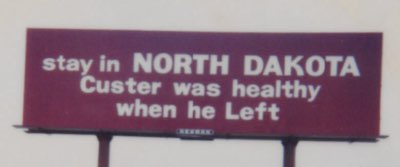Most people refer to this as Little Bighorn but I prefer to go with the winners, a combined force of First Nations known as the Lakota, North Cheyenne and Arapaho.
It’s also known as one of America’s biggest defeats in battle in which a modern force (for 1876) got clobbered by one deemed inferior, never mind the movies, the First Americans were just as well as armed as the US Army. They weren’t stupid.
Custer being killed was a good thing for America too. He wasn’t a very good officer, soldier or leader in general. He graduated last in his class at Westpoint in 1861 but since many experienced US officers defected to the Confederacy, desperation got him from being a Second Lieutenant stationed at a dead-end post to someone in the action. He caught the attention of the equally inept Major General McClellan (aka the Virginia Creeper) to receive choice assignments. Custer did work his way up in ranks both permanent and breveted (fancy for temporary, today I think we say “acting”) through various battles, namely Gettysburg. What I know about Gettysburg, it wasn’t necessarily the US Army’s skill, it was luck via Confederate miscalculations with its artillery. Even if the US lost, Lincoln would eventually put Grant and Sherman in charge to use attrition to win the overall war.
When the Civil War ended, Custer stayed in the Army and by the time of his demise, he was a Lieutenant Colonel in command of the 7th US Cavalry, not sure why people refer to him as a General. During his final years, fought in a series of battles generally called the Plains Indians Wars because those First Nations living in what we call the Great Plains, were the last holdouts to American hegemony. Custer had become quite the glory hound and was skilled at publicizing his exploits. There was even an embedded reporter traveling with him, so the bullshit we got from Iraq wasn’t new. The man was pretty delusional too. Custer thought if he defeated these people, namely their famous leaders Sitting Bull and Crazy Horse, he would easily become President of the US. I guessing he would’ve run in the 1880 or 1884 elections. His wife was also in on the hype, it’s why Custer’s defeat got mythologized for decades.
Contrary to movies like Little Big Man starring Dustin Hoffman (Richard Milligan was hilarious as Custer), the entire 7th Cavalry wasn’t killed. Custer only led five of the 12 companies directly to their doom. The two officers commanding the remaining seven survived for reasons I don’t want to write about in detail. Let’s just sum it up to combination of luck, panic and their location. Neither were courtmartialed for their decision to retreat.
I want to close with why Greasy Grass is a part of my life. During my brief time in North Dakota, its capital Bismarck had a small role in the story. A steam boat carrying gear to re-supply the 7th Cavalry encountered the survivors and was hastily converted into a moving hospital. It then hauled ass to Bismarck which was the closest city with telegraph access to tell the world what happened. So news of Custer’s defeat took about two-to-three days to get to DC.
The other anecdote is a tad funnier. In the Eighties, North Dakota had a campaign to boost tourism. I know. Why? It’s a desert with tall, dry grass and hills instead of sand. But the attempt did result in a funny billboard.

